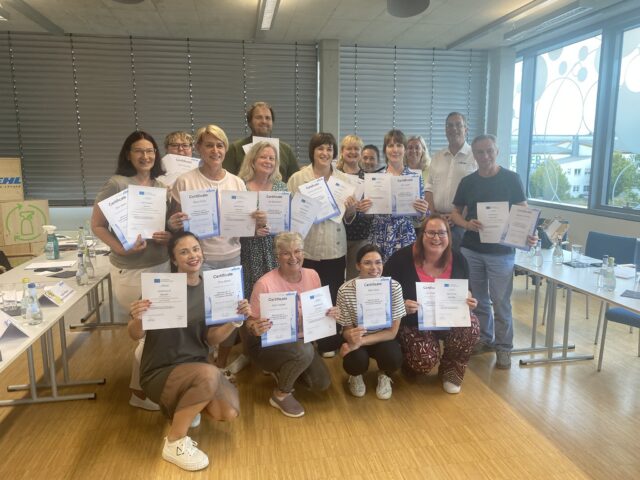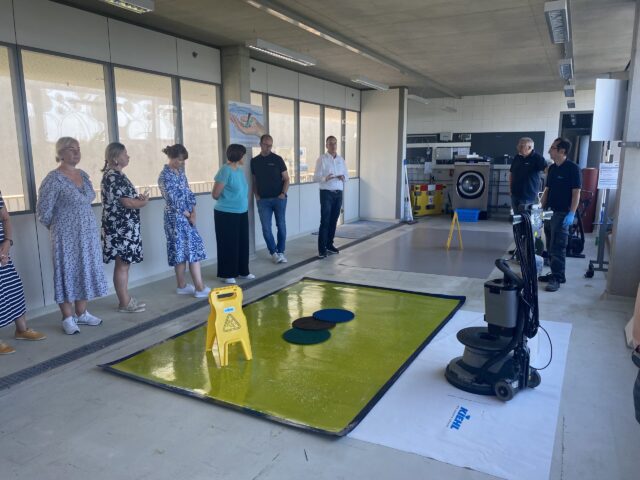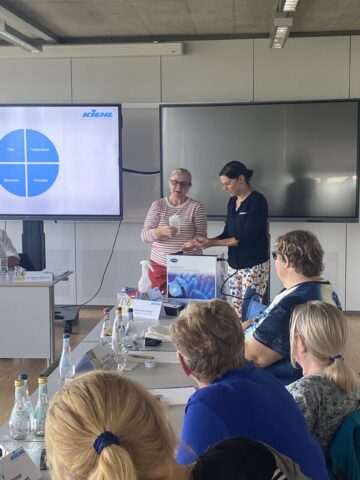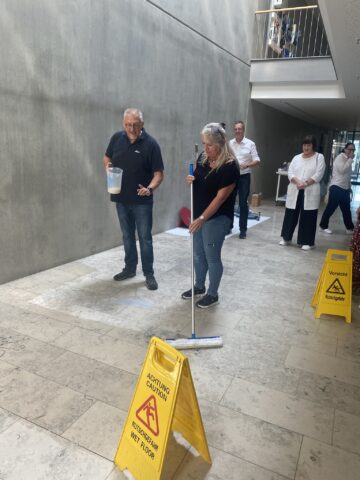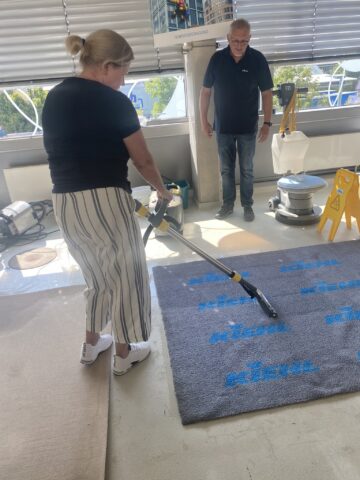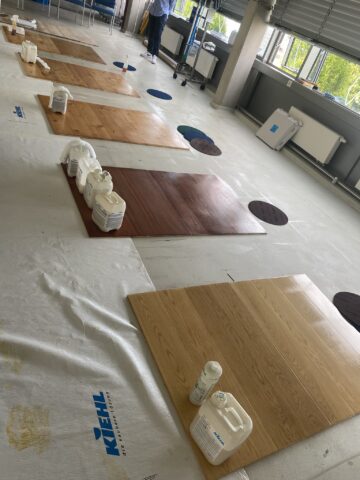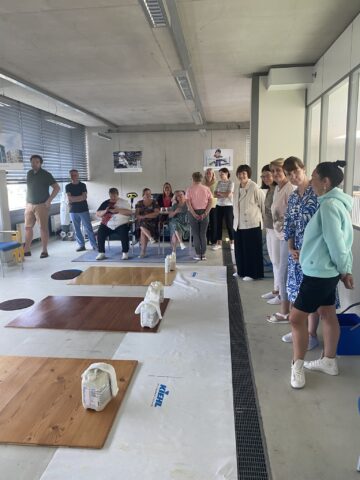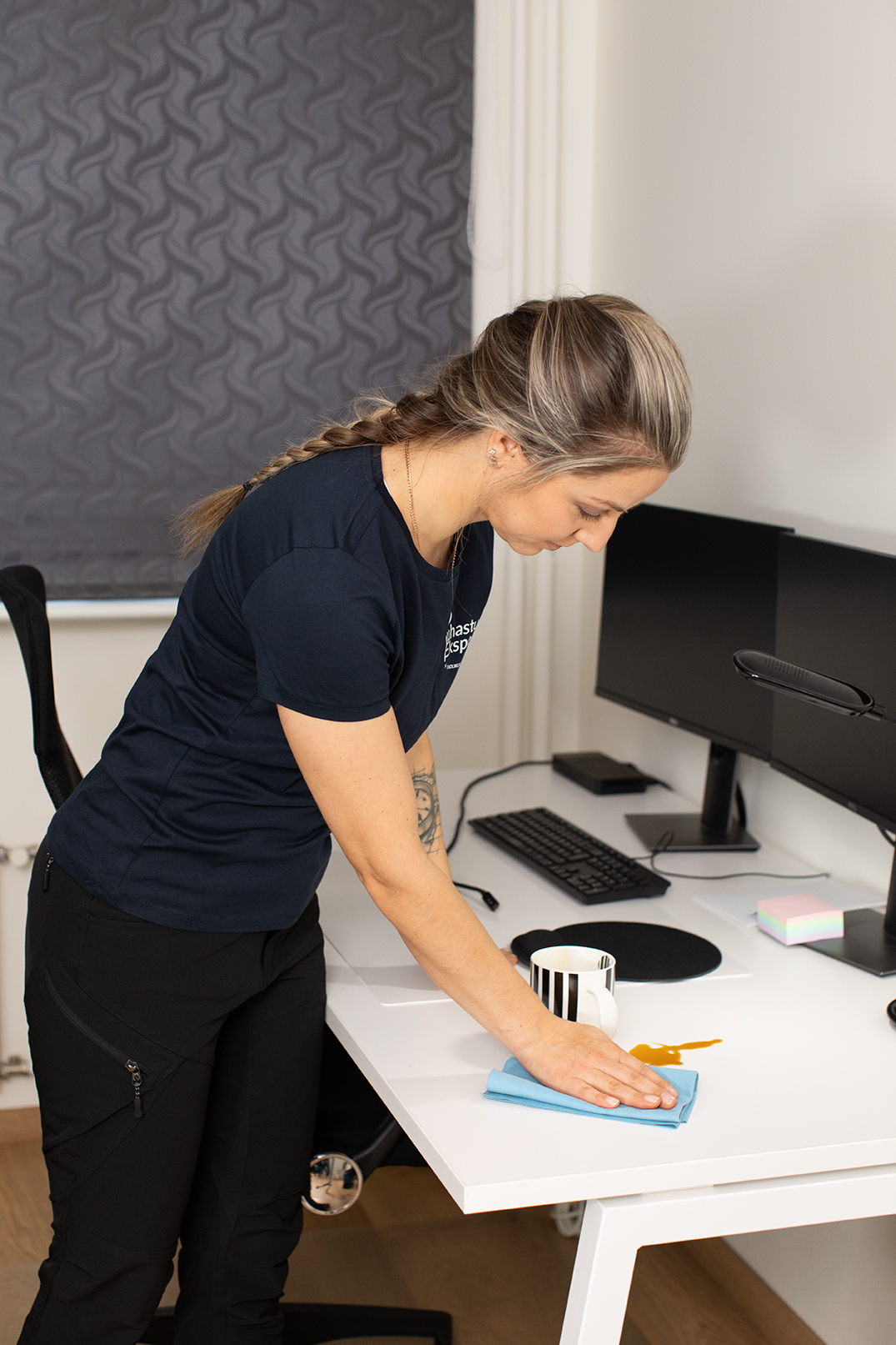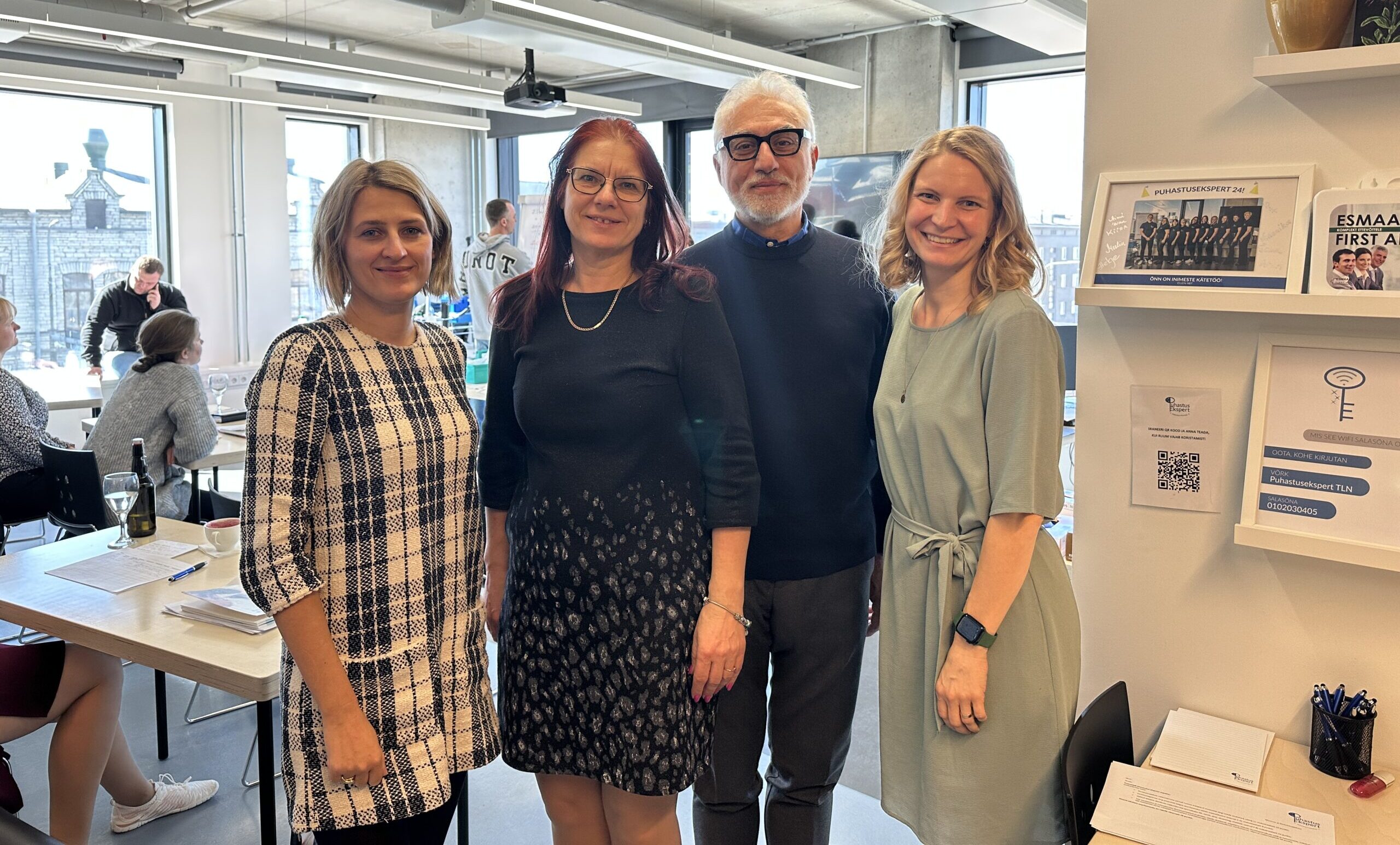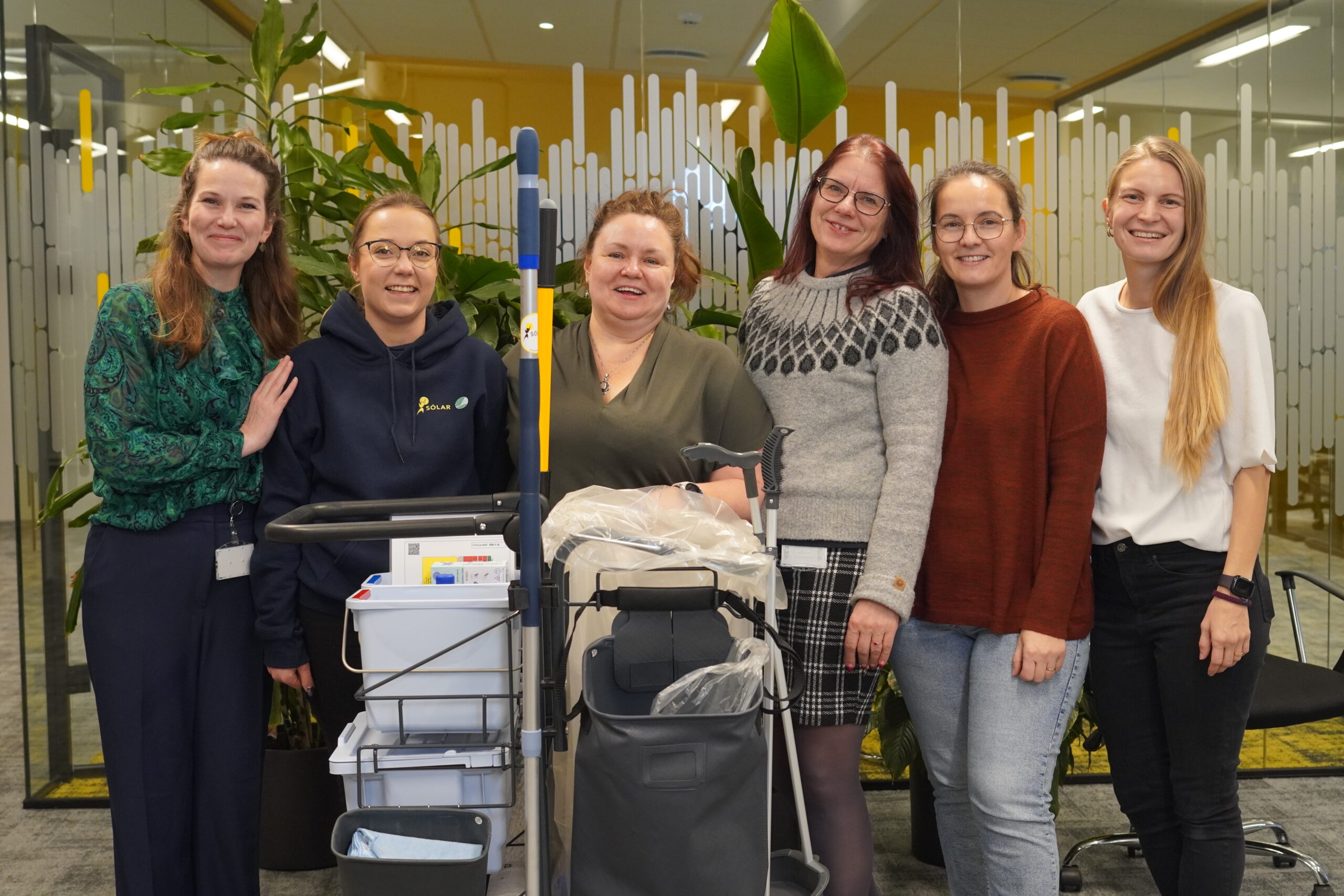Job shadowing to Germany 25.08 – 28.08.2025
 From 25–28 August 2025, Estonian cleaning service and healthcare professionals participated in a job-shadowing programme at the Johannes Kiehl KG training centre in Odelzhausen, Germany. The mobility took place within the Erasmus+ programme and offered participants valuable theoretical and practical training on cleaning, hygiene, and environmental sustainability.
From 25–28 August 2025, Estonian cleaning service and healthcare professionals participated in a job-shadowing programme at the Johannes Kiehl KG training centre in Odelzhausen, Germany. The mobility took place within the Erasmus+ programme and offered participants valuable theoretical and practical training on cleaning, hygiene, and environmental sustainability.
Since the mobility involved leaders, teachers, and trainers connected to education and training, the experience gained has a direct impact on the quality of vocational education and continuing training in Estonia. The following organisations took part in the mobility: Tartu Vocational College, SA Ida-Viru Central Hospital, Sol Baltics OÜ, SA North Estonia Medical Centre, Arkaadia Puhastus OÜ, Valga Hospital SA, Elva Hospital SA, Pesuekspert OÜ, East Tallinn Central Hospital AS, Narva Hospital SA, Tartu Health Care College, and Puhastusimport OÜ. The mobility took place within the Erasmus+ programme under agreement number 2024-1-EE01-KA121-VET-000236654.
During the job-shadowing, a wide range of topics addressing the current challenges of the cleaning sector were covered:
-
floor cleaning and finishing on different surfaces such as stone, wood, and carpet,
-
disinfection in hospitals and social care facilities (DIN 13063 standard, KRINKO recommendations, infection prevention committee guidelines),
-
environmentally friendly cleaning agents and ecolabels and their importance for quality,
-
kitchen hygiene and dishwashing machine maintenance, including the pH values of cleaning products and material specifics,
-
occupational safety and safe handling of cleaning chemicals, with an emphasis on the example and responsibility of trainers.
Kitchen Hygiene and Material Specifics
In the area of kitchen hygiene, cleaning and disinfection requirements in the food sector were examined in detail, as kitchens and catering environments are high-risk areas where incorrect cleaning processes can lead to cross-contamination and foodborne illnesses. Participants gained knowledge about the importance of the pH value and chemical composition of cleaning agents, explaining how acidic, alkaline, and neutral products affect different surfaces and when to prefer one type of solution over another.
Another important topic was the compatibility of surface materials with cleaning agents – discussions focused on how to avoid damaging surfaces while maintaining a high level of hygiene. For example, stainless steel, copper, porcelain, and microporous ceramics require different care techniques and products to preserve their properties and durability. Special attention was given to the selection of durable equipment and high-quality cleaning textiles, which are important for efficiency, hygienic results, and worker safety.
Dishwashing machine maintenance was also addressed, as it is critical for food safety and hygiene requirements. Participants learned how to prevent limescale build-up, ensure the cleanliness of internal machine surfaces, and use the right maintenance products that extend equipment life and keep the washing process high quality.
The Kiehl product range was introduced, which includes several environmentally friendly and ecolabel-certified cleaning agents. These are suitable for different surfaces and various types of dirt while supporting sustainable consumption principles. In the practical sessions, participants tested different techniques and evaluated how correct cleaning methods and products influence the results.
Hygiene and Infection Prevention
Attention was given to hygiene and the prevention of infection spread, as these are extremely important areas in healthcare and care institutions. The nature of microorganisms, their development, and behaviour in different conditions were discussed. Participants received a thorough overview of the mechanisms of infection transmission and prevention measures, including the importance of timely cleaning and disinfection.
Hospital-acquired infection prevention was specifically addressed, as it remains one of the greatest challenges in the healthcare sector. The main risk factors were discussed, along with examples of situations where small mistakes in cleaning processes can lead to serious consequences.
Participants learned to understand the different stages of disinfection processes and the importance of regular and systematic cleaning of surfaces to break infection chains and reduce the spread of pathogens. A comprehensive overview of different pathogens was provided, including viruses, bacteria, fungi, and their resistance to cleaning and disinfecting agents.
In practical exercises, participants tested different disinfection and cleaning methods and compared their effectiveness. These exercises highlighted the critical role of correct work sequences, adherence to the proper concentration of cleaning agents, and compliance with occupational safety principles. This helped participants understand how to prevent infection spread and ensure a safe environment for both patients and staff.
Cleaning Technologies and Occupational Safety
The mobility introduced the application of Sinner’s Circle (time, temperature, mechanics, and chemistry) in different cleaning tasks. Emphasis was placed on the correct dosing of cleaning agents and its impact on both the environment and health.
In practical workshops, various cleaning methods were tested: wet cleaning, machine cleaning, carpet and stone surface maintenance. Participants had the opportunity to use specialised equipment and compare the results of different methods.
The occupational safety module addressed the use of personal protective equipment, the colour-coding system of cleaning textiles, and equipment maintenance. The responsibility of trainers and managers was strongly emphasised, as their example directly shapes the everyday behaviour of learners and workers.
Article by: Tiina Matsi


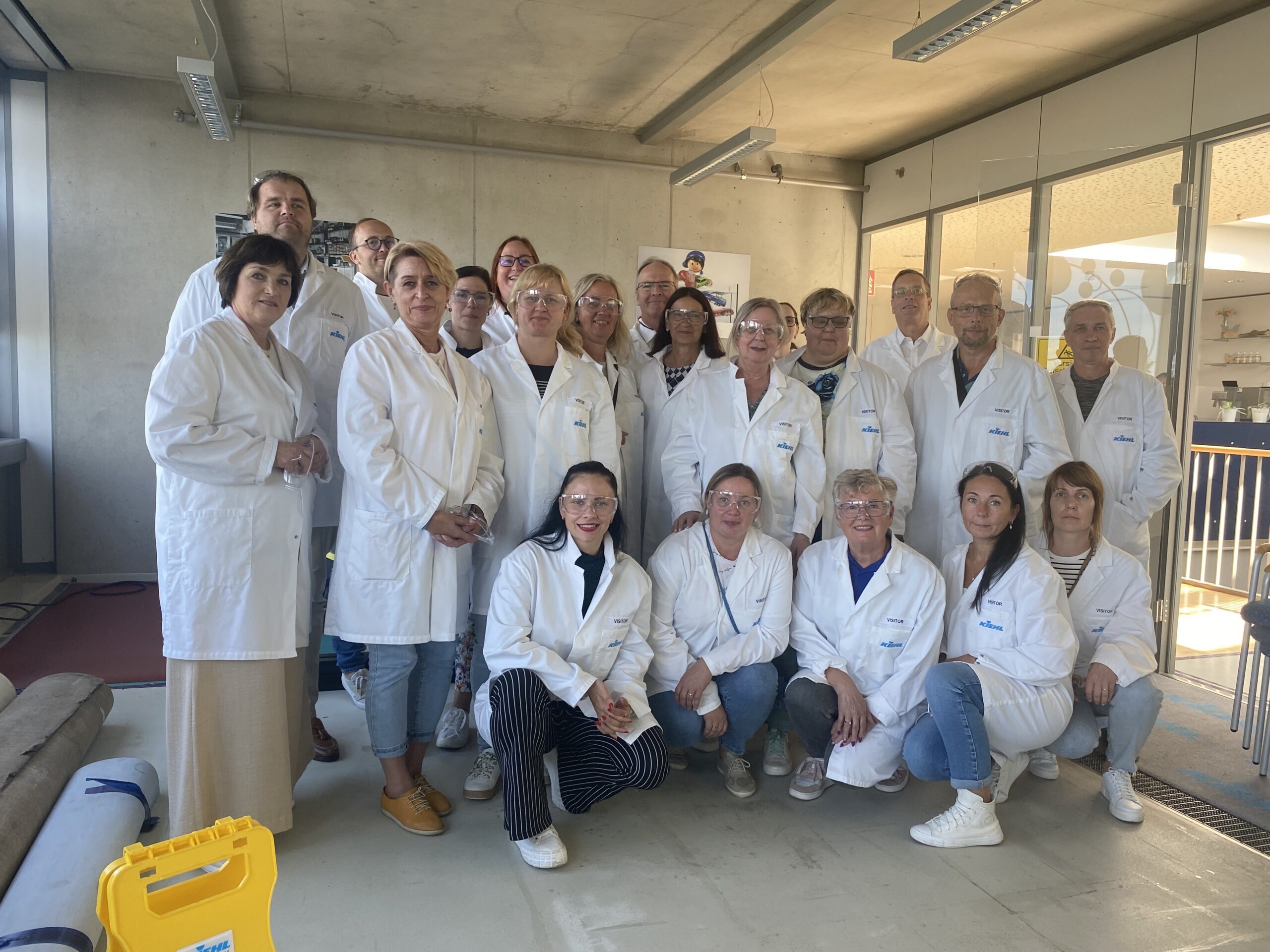 From 25–28 August 2025, Estonian cleaning service and healthcare professionals participated in a job-shadowing programme at the
From 25–28 August 2025, Estonian cleaning service and healthcare professionals participated in a job-shadowing programme at the 